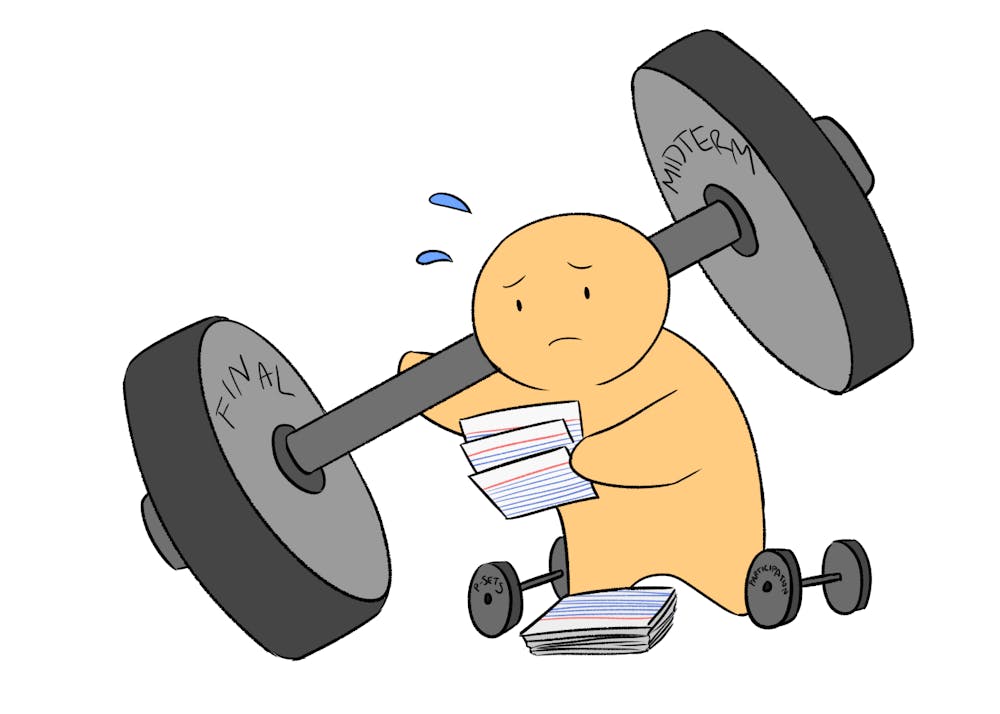Last year, many professors faced a difficult decision: How would they make sure students were given a fair chance when taking exams remotely?
For a politics course I took in the fall semester, the professor normally used an exam that centered around short questions related to readings throughout the semester. The virtual format meant that fears of cheating were heightened, however, so she instead asked us to answer a few long response questions, for which we could look at our notes. The presence of a time limit meant students who had not done the readings would struggle. Thus, it forced students to engage with the readings as a whole, rather than simply memorizing facts or summaries.
My professor’s decision to change the exam format was not a unique one. While in theory, the existence of the Honor Code would have ensured professors that they could trust us to take virtual exams without cheating, even as we had easier access to off-limits resources, this was not necessarily the case. Thus, some, like my Politics professor, turned away from traditional means of examination that prohibited outside materials and tested recall of material from specific readings or lectures in the course. Instead, they shifted to open note tests with more challenging or nuanced questions.
This decision had another positive effect: It allowed students to engage more constructively with the material because rather than cramming and memorizing, we were required to comprehend and synthesize.
Going forward, when possible, professors of exam-based courses should change their classes to focus on assessing critical thinking, as was the result of exams administered virtually.
The first way to do this is by changing the format of final examinations. Grades, tests, and assessments are conducted very differently across courses, and there are some classes where it is logical for professors to test the ability of students to recall information from lectures or readings based on the assumption that everything should be clear to students given the material they have been taught. This does make sense in some fields; some companies and firms will judge applicants based on their ability to take tests and draw on knowledge off of the top of their heads.
In many fields, however, these types of assessments do not make as much sense. Applicants will be judged on their ability to do critical thinking and formulate a succinct response, with all relevant material available to them as they work. This more closely mirrors open-note tests or essay responses, which suggests that for some professors to better judge students’ understanding of the material or prepare them for future assessments, they should change their testing practices.
Another change professors must make is shifting away from summative assessments and toward formative assessments. Formative assessments, like problem sets and discussion responses, are generally better for monitoring student learning and engagement. But because they are not worth as much, students do not have as much incentive to put in full effort.

In contrast, summative assessments are typically higher stakes: midterm and final exams that, as I explained before, typically assess students’ ability to recall information from lectures and readings from memory. Because these midterms and final exams can often be worth the plurality, or even the majority, of a course grade, students will spend far more time trying to prepare for these exams if they are trying to secure a good grade in the class.
Because of the emphasis put on getting good grades, cramming is often seen as the best strategy for classes that do not monitor participation throughout the course. Unsurprisingly, cramming does not typically lead to retention and takes a physical and mental toll on the test-taker. This also means students could struggle in future courses because even though they may have taken prerequisites, they find themselves ill-prepared as they did not truly synthesize or comprehend the material.
These harmful practices brought on by the emphasis of summative assessments demonstrate why professors and course administrators need to shift the emphasis to assessing our comprehension throughout the course, rather than simply relying on one test to assess performance. This could mean putting more weight on problem sets or requiring greater participation in other ways throughout the course. Shifting weight away from midterms and finals would encourage students to try to fully understand what is going on throughout the course.
Even if professors choose to keep exams heavily weighted or under restrictive time constraints, changing these to open-note tests will still reward those who have been participating throughout and allow for questions that examine concept comprehension rather than the ability to regurgitate material.

Beyond learning, this would benefit students in other ways as well — midterms and finals periods would be less stressful and hopefully encourage students to set good study habits and schedules throughout the semester.
These changes would not demand revolutionary change to the course structure: it would merely encourage learning and interacting with the entirety of the course, rather than briefly memorizing large portions of the course material, only to be forgotten once the exam ends.
Mohan Setty-Charity is a sophomore from Amherst, Mass. He can be reached at ms99@princeton.edu.








